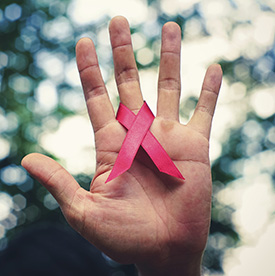HIV Treatment in Beverly Hills, CA

HIV | Definition
The human immunodeficiency virus (HIV) is responsible for a large number of symptoms that lead to the development of acquired immunodeficiency syndrome (AIDS ). HIV is transmitted through bodily fluids including blood, semen, breast milk and vaginal fluid. The virus is often contracted through having unprotected sex with, sharing a needle with, or receiving a blood transfusion from an infected partner.
Symptoms of HIV typically appear within a month of infection. The virus progresses through a number of stages before it is eligible to be classified as AIDS. A number of medications exist to slow the spread of the virus and give those infected a shot at leading an otherwise normal life.
HIV | How It Works
The virus infects healthy immune cells (typically CD4 T cells) by adhering to the cell wall and effectively tricking its way into the cell. Once inside, the HIV virus begins to replicate and spread its genetic material throughout the healthy cell, using the cell’s resources to grow and eventually infect other cells.
Because the virus infects immune cells, the immune system of the host can quickly become compromised. This leaves patients vulnerable to a variety of opportunistic diseases. These diseases would typically not survive against a healthy immune system but are often life-threatening in HIV patients. HIV typically becomes classified as AIDS once the number of healthy CD4 cells falls below 200 cells per cubic millimeter of blood. At this point, the host is susceptible to a new range of side effects and potential hazards.
HIV | Progression
The progression of HIV is broken up into three stages, each with its own unique blend of symptoms.
Acute Infection
This stage is characterized by flu-like symptoms . These symptoms are distinguishable from a regular flu due to their extreme severity. Symptoms are often accompanied by rashes, muscle or joint pains , headaches and swollen glands. In this stage, the virus is replicating extremely fast. CD4 cells are being infected and destroyed left and right as the number of healthy immune cells plummets.
Clinical Latency Stage
This stage, typically lasting around 10 years, is characterized by a drastic reduction, or disappearance of symptoms. The virus replicates at a much slower rate. Most patients try to remain in this stage for as long as possible, extending its duration by following a strict medication regimen.
AIDS
Those who maintain a disciplined medication regimen may never reach this stage. Once the CD4 count has dropped low enough to be categorized as AIDS, the body becomes highly susceptible to opportunistic diseases and infections. Without treatment, the average patient rarely lives longer than three years. Once a patient has contracted an opportunistic infection, they are only typically able to fight it for about year.
HIV | Treatment
There are a wide variety of HIV medications which serve a number of purposes. Some treat the infection itself, preventing it from replicating and spreading through the body. Others treat the side effects which the virus often causes. Some drugs prevent opportunistic diseases which take advantage of the host’s weakened immune system and cause life-threatening damage.
HIV has proven particularly effective in fighting antiviral drugs. HIV medication is often designed to treat one form of the virus. Unfortunately, DNA has a high mutation rate and can quickly spawn new forms of the virus for which to look. This is why most cases of HIV are treated with a drug cocktail containing a variety of drugs to prevent the spread of multiple forms of the virus. Taking extra care to never miss a dose is incredibly important to preventing the spread of HIV. Following a consistent drug regimen keeps the virus from replicating, preventing not only its spread but the development of new mutations.
When a dose (more realistically, a couple of consecutive doses) is missed, the virus can seize the opportunity to charge forward, replicating incredibly fast, and therefore, creating mutated strains of the virus left and right. In the past, many high-profile figures (including some within the medical community) have advocated taking “vacations” from HIV medication. Those who did often felt fine for a short while. However, this was only because the virus was building up. Before long, many were hit with a massive recurrence of symptoms as the virus grew and introduced mutations for which no medication existed. The approach was short-lived and resulted in a number of deaths.
HIV | Living With HIV
Those who follow strict medication regimen (rarely, if ever, missing a dose) may still have a relatively normal lifespan. There are also a number of support groups for learning to live with the illness and resources for paying for HIV medication. It is also important to know that it is almost always illegal to discriminate against someone based on a positive HIV diagnosis.
However, all those infected with HIV have the moral, ethical, and legal responsibility to inform potential sexual partners of their condition. Knowingly transmitting HIV/AIDS through sexual activity, organ donation or by any other means is illegal in the United States. Getting tested for HIV, whether you have it or not, is incredibly important. It is always better to know you are uninfected than to roll the dice on being “pretty sure.”
Request more information about HIV testing and resources today. Call (424) 365-1800 or contact Vitality Integrative Medicine online.
Vitality Integrative Medicine
Address
4849 Van Nuys BlvdSuite 104
Sherman Oaks, CA 91403
(424) 365-1800
www.vitalityintegrative.com
Hours
Mon:
8:00 am - 6:00 pm
Tue:
8:00 am - 6:00 pm
Wed:
8:00 am - 6:00 pm
Thu:
8:00 am - 6:00 pm
Fri:
8:00 am - 6:00 pm
Sat:
8:00 am - 12:00 pm
